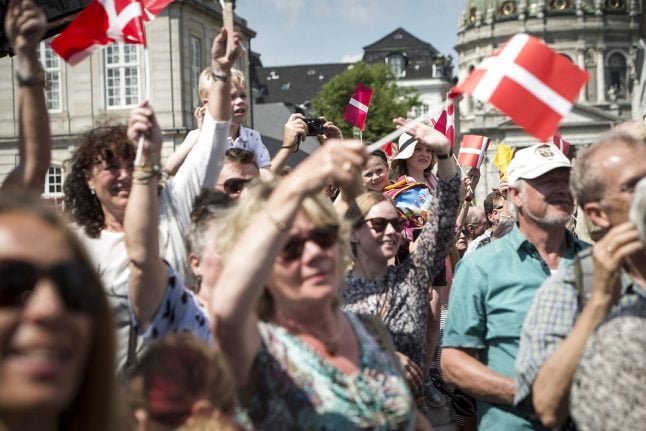The survey-based report rates Denmark high on happiness, as it has done for several years, but do you agree? Here’s what you told us.
Freedom and choice for everyone
Denmark does well on these surveys because of the small things, Cathy Chen, who lives in Copenhagen, wrote.
“Small (things), like meeting friends for coffee, having a talk, waking around lakes” are all everyday parts of Danish life that encourage happiness, Chen wrote.
“Also, for Danes, their country has a very nice social welfare system to protect its citizens. They do not have to worry too much about their life,” Chen added.
Others also cited the country’s social safety net and low income inequality.
“People have fewer concerns than in other places,” wrote Marco Giannini, who also lives in Copenhagen.
Another aspect of Danish society that allows happiness to flourish is trust, wrote Hazel Mills, who lives in Augustenborg in South Jutland.
“People are generally very respectful to each other and so much is done on trust and that trust is rewarded. Taxes may be high but you can see where they go. People work hard but also make the most of their free time. And I love hygge!”, Mills wrote.
Acceptance and progressive values are an important area in which Denmark does well, said Marjorie Skiba of Næstved.
“(Denmark) has a system that promotes freedom and choice for everyone, has gender parity and reveres children,” Skiba wrote.
Work-life balance was a part of Danish culture almost unanimously appreciated and praised by our readers, as it has been in previous questionnaires.
Denmark’s happiness is “not happiness, it is contentment. The Danes take their time doing things. They're not stressed,” Crispin Avon of Copenhagen wrote.
Language and culture
A number of readers praised Denmark on happiness but said it could still sometimes feel hard to access.
“Living as an expat in Denmark is entirely different from a normal Dane’s life. (On) one side, it is extremely good in things such as work-life balance, living in a technology frontier nation, (with) high culture and no racism — I haven't felt racism yet. But on the other side, it is very difficult to be a part of the society due to language and cultural differences,” Mohan Raj of Odense wrote.
“You can glimpse the fruit of happiness but cannot really taste it for yourself. In four other countries where I have lived, the people had no such accolade [high happiness survey rankings, ed.] to be proud of but I was happier there,” wrote Ginny Joseph, who lived in Denmark for eight years and currently resides in Dubai.
Unhappy weather, long-term happiness
But is there anything about Denmark that makes it less happy than other countries? A highly popular answer to this question was – the weather.
“I have been the saddest living in Denmark. Depressed by the weather,” Juny Merredith of Horsens wrote.
Although it can be hard to see the happiness associated with Danes on the surface, there is evidence it’s there, according to the answers we received.
“Danes are not happy people, contrary to popular belief, you don't see Danes smiling or getting over excited very often. So happiness here is more to do with the practicalities of living,” Andy Keefe, also of Horsens, wrote.
For others, what would normally be mundane moments are evidence of happiness.
“Streets crowded with bikes at 8:30am instead of streets crowded with cars at 7:30am, as well as crowded grocery stores at 5pm instead of 6:30pm” was an everyday reflection of Denmark’s happiness, Tom Gibson of Copenhagen said.
“Shopping is so much more pleasant with generally cheerful and polite shop assistants and checkout people,” Hazel Mills added.
Although Denmark is ultimately far from being a country where everyone is happy, it has the right ideas in place for long-term contentment and not just a quick fix, one reader suggested.
“There are still a lot of people in Denmark that are unhappy. Which is why there is also a lot of work being done in regards to loneliness and to improve people's mental health. Plus, the weather here doesn't make it easy to be happy every day,” Ave Nurmeots, who lives in Aarhus, wrote.
“I think the happiness does mainly come from (hygge, work-life balance and the social welfare model) and is more about long-term happiness than short-term positive emotions,” he added.
READ ALSO:




 Please whitelist us to continue reading.
Please whitelist us to continue reading.
Member comments